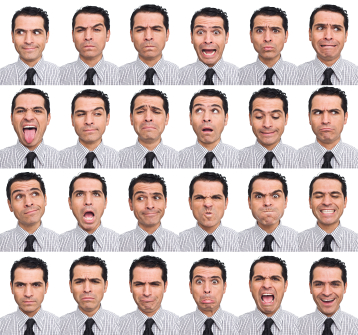


Why All Choices are Emotional
Any belief we take on, or any logic we follow, we do so because on some level, we believe it will bring us closer to feeling better about ourselves and our reality, or it helps us defend against losing what level of comfort we already have.Read More...
Steve is a middle manager and a programmer who’s in his mid-thirties. He is in my Be Your Own Coach workshop, and I’ve asked him to write down his top ten “wants” in thirty-seconds.
Like most of the others in the workshop on this day, he doesn’t make it past three desires listed in the time allotted. I tell the workshop that this is evidence that not one of them is thinking about what they really want often enough, or they’d have successfully listed more than 10 desires each, given the same amount of time.
Steve agrees: “I realize that I haven’t thought about what I really wanted in years!” he reveals to the rest of the workshop.
I ask Steve to pick one of his desires from the list. He picks some training he wants his employer to provide him. I ask him why he wants it. He tells me that it will give him the certification he needs to get a promotion, and it will keep his skills current.
I ask Steve what that would mean to him. I ask him how that would make him feel. He disregards the feeling question, and answers logically (as I expect him to, because he is a Jungian “thinker&rdquo, “I am more likely to get a promotion and a raise with this training,” he says.
“How does that feel?” I persist.
“I would feel more confident leading my direct reports, and plus… well, I just realized something about my personality: I love to learn. I love knowledge! I’d feel great just learning new stuff!”
“So, if you had to sum it up” I continue, “How would this additional confidence, and the process of learning new stuff make you feel?”Comments


By the way, if your child was diagnosed with ADHD, or is labeled an underachiever, he or she is in good company. Famous ADHD-ers include Steven Spielberg, Bill Gates, Albert Einstein, Thomas Edison, Ann Bancroft, and many more. Underachievers (in school) included Charles Darwin, Carl Jung, Albert Einstein, Thomas Edison, Gauguin, Turner, Edouard Manet, and Rodin. These are but a few examples!
A few days ago, my wife of 31-years proclaimed to me that I was “borderline gifted.” Now depending on your own self-image, you might have received such a pronouncement as either an insult, or a compliment. Coming from Sue, who is a “show-me” kind of gal, it was indeed a compliment, and my response was hearty laughter. What did I do to earn this borderline gifted status? What did I need to do to achieve full-fledge “gifted” rank? It was just too-funny.